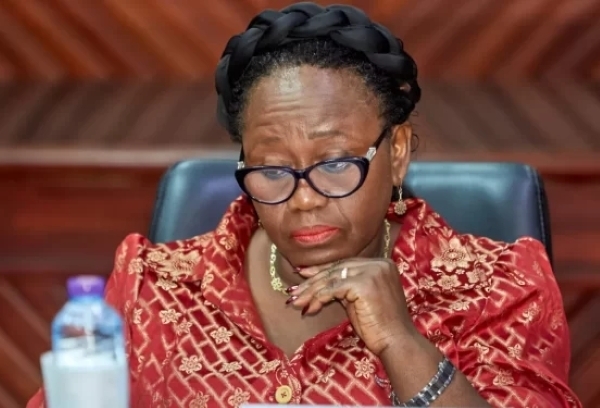CJ responds to Mahama's removal petition ahead of time
 Gertrude Torkornoo, Chief Justice
Gertrude Torkornoo, Chief Justice
Chief Justice Gertrude Torkornoo has officially submitted her preliminary response to President John Dramani Mahama following multiple petitions calling for her removal from office ahead of time.
Her response comes as the 10-day deadline granted her to react to the petitions expired on Monday, April 7, 2025.
The petitions, which were presented to the President last month, have since sparked national discourse and legal debate on the constitutional processes involved in the potential removal of a sitting Chief Justice.
Justice Torkornoo had earlier written to the President requesting full access to the petitions and asked for at least seven days to respond, in accordance with the principles of due process and fairness.
Her written response has now been forwarded to both the President and the Council of State and is expected to guide the next phase of the constitutional process, as outlined in Article 146(6) of the 1992 Constitution.
According to Article 146(6), when a petition is filed against a Chief Justice, the President, in consultation with the Council of State, must establish a five-member committee—comprising two Supreme Court Justices and three non-politically aligned members outside Parliament, the Council of State, and the legal profession—to investigate the matter and advise on whether the Chief Justice should be removed from office.
The submission of the Chief Justice’s response marks a pivotal moment in the unfolding constitutional process.
A decision is expected in the coming days on whether a committee will be formed to further investigate the allegations.
Meanwhile, a related legal challenge is scheduled to be heard by the Supreme Court on April 9.
The suit, filed by Old Tafo MP Vincent Ekow Assafuah, questions the legality of the President initiating the removal process before officially notifying the Chief Justice.
The removal of a Chief Justice is governed strictly by Article 146 of the Constitution, which outlines a detailed and protective process to ensure fairness and independence of the judiciary.
The article provides for the formation of an investigative committee, grants the right to a defence, and mandates that all proceedings be held in camera.
Source: Classfmonline.com/Cecil Mensah
Trending News

MoH reduces application form fees for nursing training institutions
12:06
Roads Minister inspects work on Buipe, Yapei bridges
15:54
Bawumia visits Ntim Fordjour after NIB's attempted arrest
08:37
Amoako Baah breaks away to form 'New Patriotic Front'
11:36
Minority calls for swift action to resolve Bawku conflict
07:42
Remain calm, steadfast and law-abiding – Bawumia to NPP supporters
08:33
NALAG President commends Zoomlion CEO for outstanding contribution to sanitation and local development
10:07
Kasoa Magistrate Court remands two suspects in landguard attack case
18:33
Don’t use security institutions to intimidate opponents – Bawumia warns Mahama
08:25
“GHS 300m can build a pad factory” – MP criticizes gov't’s sanitary pad procurement plan
09:47



